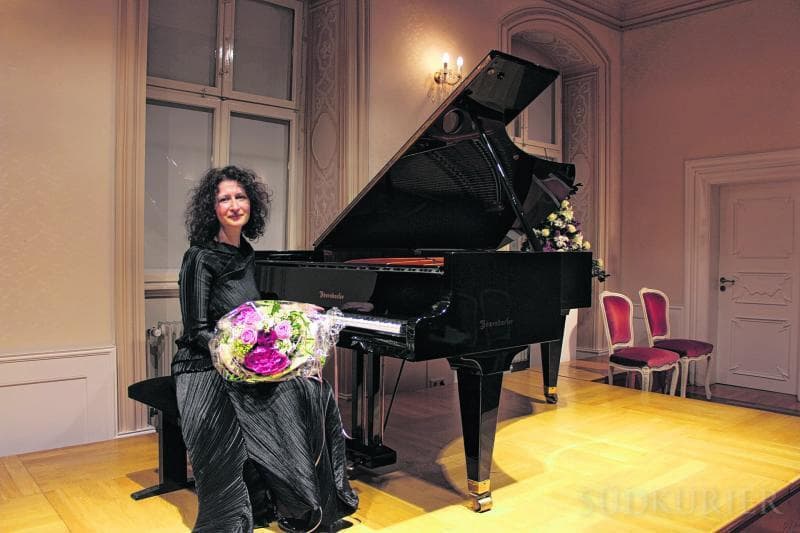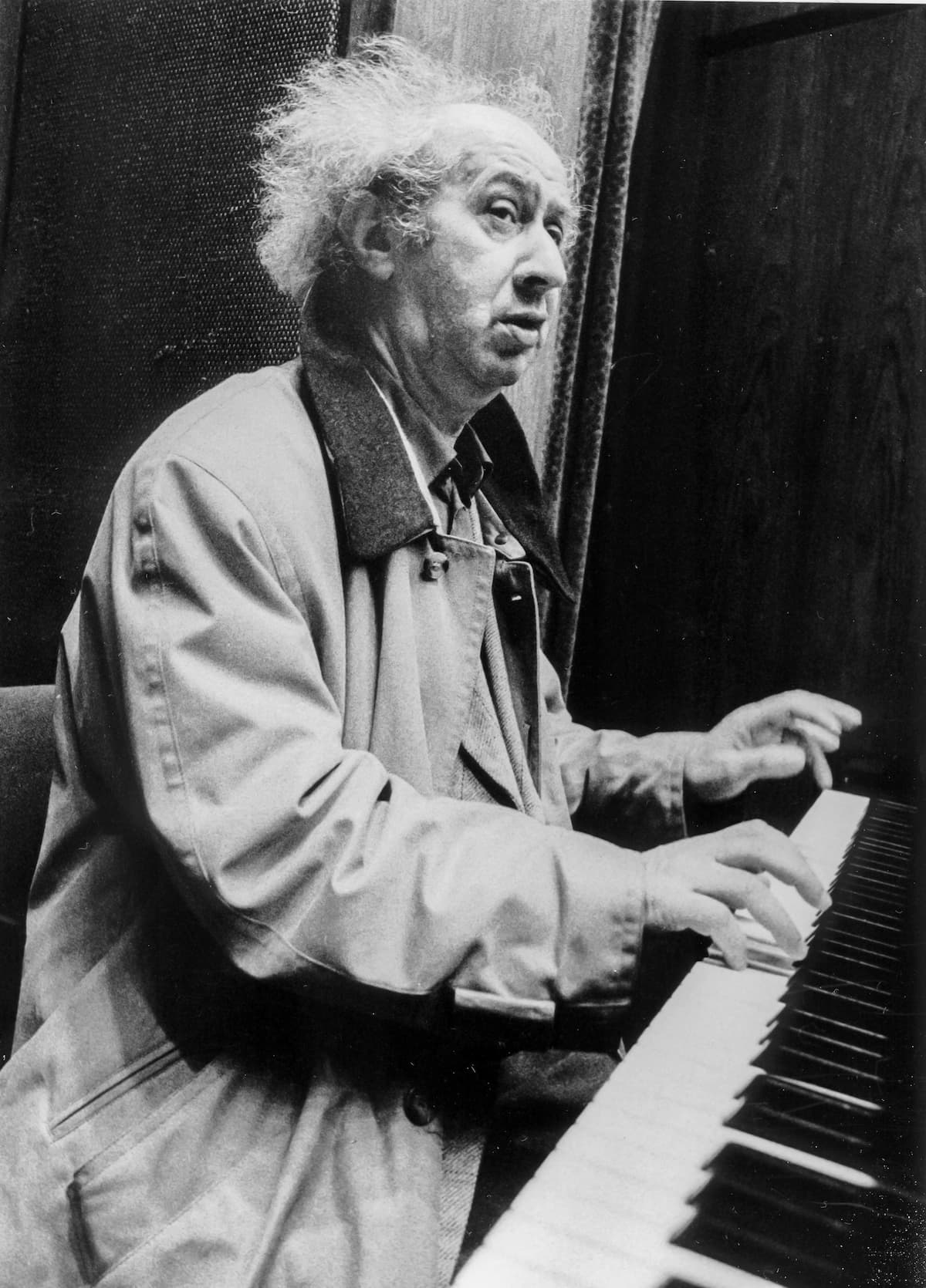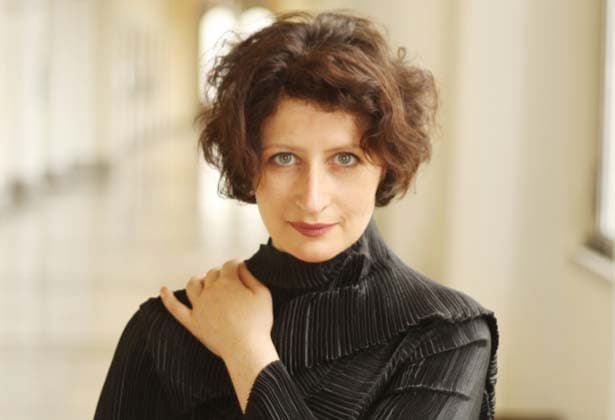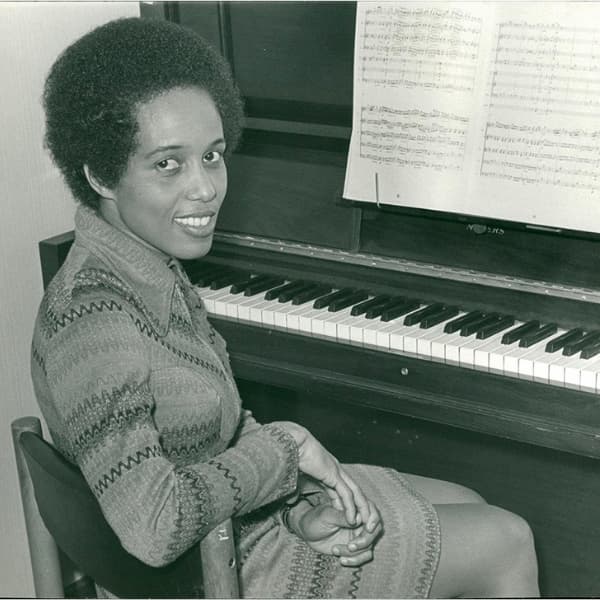Dina Ugorskaja is frequently hailed as a “philosopher at the piano,” internationally known for her thoughtful and sensitive interpretations. During her struggles with cancer in her final years, Ugorskaja projected a sense of darkness that made her interpretations “fearsomely beautiful, harrowing, even menacing.” Her battle against cancer had become a race against time, and relief rather than triumph became the overriding emotion. Ugorskaja died in 2019, at the age of 46.
Dina Ugorskaja Plays Bach’s Prelude and Fugue in B minor, BWV 896
Beginnings

Dina Ugorskaja
Dina Ugorskaja was born on 26 August 1973 in Leningrad, Soviet Union, into a decidedly musical family. Her mother, Maja Elik, is a musicologist who took on the role of the speech-singer at the Soviet premiere of Arnold Schönberg’s Pierrot Lunaire. Not to be outdone, her father is renowned pianist Anatol Ugorski, whose career was hindered and blocked by Soviet powers who deemed him a political liability. Despite being an Enescu Prize winner, he played for schoolchildren in the industrial Soviet hinterlands.
Dina listened to her father practicing, and her musical aptitude emerged rapidly as she started to play the piano, sing, and compose at an early age. She took her first lessons with her pianist father, as “I was his first (very young) student.” As she recalls, “and it wasn’t just piano lessons, but rather a general musical one. There was also a lot of sight-singing, from Schütz to Schumann songs.”
Franz Schubert: Piano Sonata No. 21 in B-Flat Major, D. 960 (Dina Ugorskaja, piano)
Years of Soviet Study

Anatol Ugorski
According to Ugorskaja, “it was a wonderful and very fruitful and experimental time.” She played almost the entire “Microcosm” by Bela Bartók when she was 6 or 7 years old. Dina first appeared publicly at the age of 7, and she was admitted to the Leningrad Conservatory in 1980, where she took piano and composition lessons at the Special Music School attached to the main institution. She took piano lessons from Maria Mekler, and studied composition with Yevgeny Irshay, the head of the piano faculty.
Ugorskaja continued to enjoy singing with a focus on early music, and she enjoyed the advantages of the Soviet system of musical education, which included a high level of theoretical training at a very young age. Ugorskaja made her concerto debut at the age of 14, performing Beethoven’s Piano Concerto No. 4. Just one year later, she made her debut as a composer when her string quartet was performed at the Leningrad Philharmonic.
Dina Ugorskaja Plays Ustvolskaja’s Sonata No. 5
Emigration

Dina Ugorskaja
The political reform movement within the Communist Party of the Soviet Union in the late 1980s, widely associated with Mikhail Gorbachev, sadly also gave rise to extreme far-right antisemitic organizations. Dina, aged 16, was continuously harassed and threatened until her family felt compelled to flee to Berlin in 1990. They lived on the outskirts of East Berlin, poor and unrecognised until friends pushed the re-discovery of Anatol Ugorsky’s genius. Anatol had picked Germany because he absolutely loved the works of Beethoven.
With German reunification on the horizon, Ugorskaja applied for admission into the “Hanns Eisler” Conservatory in Berlin. Between 1990 and 1992, she studied with Annerose Schmidt and Galina Ivanzowa, and she recalled, “at the beginning of my time in Germany I had probably the most “Russian” lessons of my life in Berlin with Galina Ivanzowa, who herself studied with Heinrich Neuhaus. I think I played Rachmaninoff for the first time with her. Furthermore, and this is really very “Russian” and absolutely fantastic, she takes care of each of her students as if they were her own child.”
Robert Schumann: Kreisleriana, Op. 16 (Dina Ugorskaja, piano)
Building a Career

Nerine Barrett
The upheaval of her abrupt departure from the Soviet Union caused her a lot of emotional distress, and according to Ugorskaja, “it gave me an inner barrier to making music.” She would listen to music on the radio for days and nights and went on to study at the Conservatory in Detmold in 1992. A completely new era began for Ugorskaja when she started taking lessons with Nerine Barrett.
Barret had studied with the Hungarian-British pianist Ilona Kabos and then with Rudolf Serkin. Studying with Barret taught Ugorskaja that “ideally you always have to subordinate your own comfort to the needs of the work.” After receiving her concert diploma, Urgoskaja slowly and deliberately built her career. Her recitals and recordings were initially insider affairs, but a recital in Munich, where she substituted on short notice, “brought more late recognition from astounded audiences and critics.”
For more of the best in classical music, sign up for our E-Newsletter
